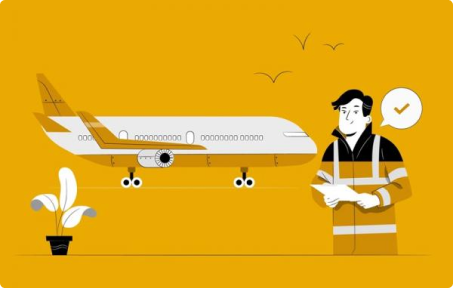In recent years, the landscape of the job market has undergone a significant transformation, and the civil aviation maintenance field is no exception. Traditional employment structures are being challenged by the rise of freelancing, bringing both opportunities and challenges to the professionals responsible for keeping our skies safe.
1. Flexibility Takes Off:
One of the most notable impacts of freelancing in civil aviation maintenance is the newfound flexibility it offers to professionals. Unlike the rigid schedules of traditional employment, freelancers have the ability to choose when and where they work. This flexibility allows individuals to better balance their personal and professional lives, potentially leading to increased job satisfaction and overall well-being.
2. Specialized Expertise Soars:
Freelancing allows individuals with specialized skills to take on a variety of projects across different airlines and maintenance organizations. This diversification of experience can contribute to a higher level of expertise in specific areas of aircraft maintenance. As freelancers navigate through different challenges in various environments, they become more adaptable and resourceful, ultimately benefiting the industry as a whole.
3. Meeting Demand:
The civil aviation industry experiences fluctuations in demand for maintenance services, often influenced by factors like seasonal changes, fleet expansions, and unforeseen events. Freelancers provide a dynamic solution to this challenge, as they can be readily available to meet increased demand during peak periods and offer their expertise on short notice.
4. Challenges in the Clouds:
While freelancing brings numerous advantages, it’s not without its challenges. Communication and coordination become crucial in a field where precision and teamwork are paramount. Maintaining effective collaboration between freelancers and established maintenance teams requires the adoption of digital tools and communication platforms that can bridge the gap and ensure seamless operations.
5. The Future of Aviation Workforce:
The impact of freelancing in civil aviation maintenance suggests a potential shift in the traditional employment model. As more professionals embrace the freelance lifestyle, the industry may witness a transformation in how work is organized, with a greater emphasis on project-based collaborations and a move away from long-term, fixed employment contracts.
In conclusion, freelancing in the civil aviation maintenance field is a trend that is reshaping the industry. The increased flexibility, specialized expertise, and ability to meet demand make freelancers valuable contributors to the maintenance of safe and efficient air travel. However, addressing the challenges associated with this shift is crucial to ensuring a harmonious integration of freelancers into the complex and highly regulated world of civil aviation maintenance.
